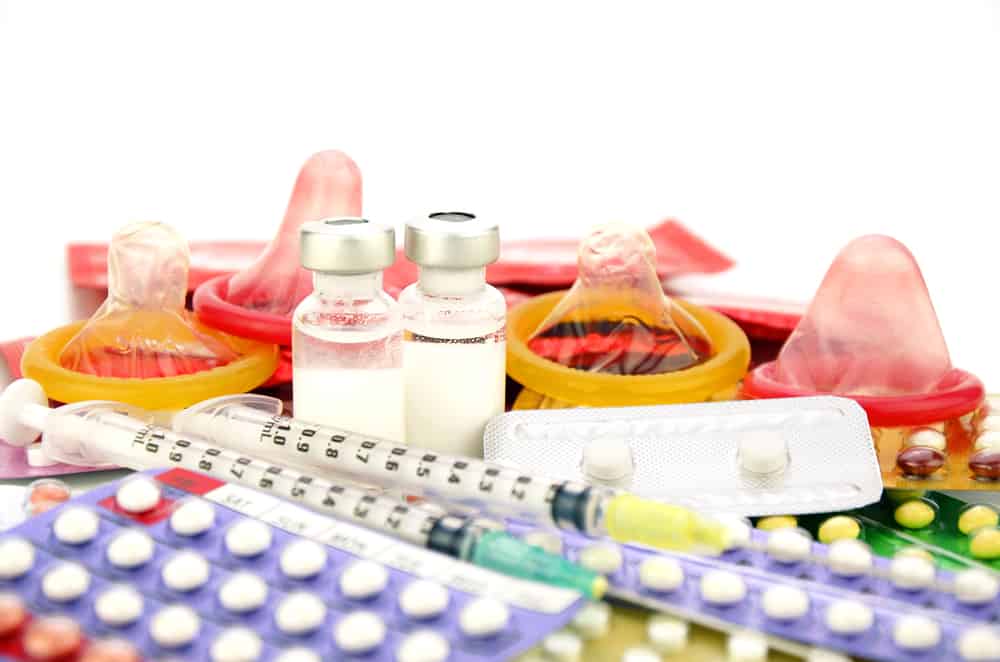Contents:
- Medical Video: Perspective on autoimmunity: a view from the ANCA vasculitis looking glass
- What is antineutrophil cytoplasmic antibody?
- When do I have to take antineutrophil cytoplasmic antibodies?
- What should I know before undergoing antineutrophil cytoplasmic antibody?
- What should I do before undergoing antineutrophil cytoplasmic antibody?
- What is the process of antineutrophil cytoplasmic antibody?
- What should I do after undergoing antineutrophil cytoplasmic antibody?
- What do the test results mean?
Medical Video: Perspective on autoimmunity: a view from the ANCA vasculitis looking glass
Definition
What is antineutrophil cytoplasmic antibody?
Antineutrophil Cytoplasmic Antibody (ANCA) is used to diagnose vasculitis diseases. Antineutrophil Cytoplasmic antibodies are antibodies that fight the polymorphonuclear cytoplasm of leukocytes.
Wegener's granulomatosis (WG) is a disease that causes injury to the system of small arteries in the body, lungs, and upper respiratory tract (nose - throat) caused by inflammation. Previously, the diagnosis was made by biopsy of the injured tissue. Now serological diagnosis has an important role in the diagnosis of WG and other systematic vasculitis diseases.
When do I have to take antineutrophil cytoplasmic antibodies?
An Antineutrophil Cytoplasmic Antibody test will be performed if the doctor suspects you have symptoms of autoimmune vasculitis. This test can also support the diagnosis of systematic vasculitis diseases such as Wegener's granulomatosis (WG). In addition, Antineutrophil Cytoplasmic Antibody tests can be used to monitor disease progression, treatment and early detection of the risk of relapse.
In the early stages of the disease, the symptoms appear vague and non-specific, such as fever, fatigue, weight loss, muscle and joint pain, and night sweats. As the disease develops, injuries to blood vessels in the body can cause symptoms of complications in some tissues and organs.
- eyes - red, itchy or "pink eyes" (uveitis eye) impaired vision (blurred vision, loss of vision)
- ear - hearing loss
- nose - runny nose or other symptoms in the upper respiratory tract (stuffy nose, sneezing)
- skin - rash or granulomas
- lung - coughing and / or difficulty breathing
- kidney - protein in urine (proteinuria).
Antineutrophil Cytoplasmic Antibody tests can be done in conjunction with other tests such as the anti-yeast Saccharomyces cerevisae antibody, in patients who have symptoms of appendicitis, also for doctors to distinguish ulcerative colitis and Crohn's disease.
Enteritis symptoms include:
- pain in the abdomen and cramps
- diarrhea
- rectal bleeding
- fever
- fatigue
- some patients have symptoms in muscles, skin and bones
- physical and mental disability in children.
Prevention & warning
What should I know before undergoing antineutrophil cytoplasmic antibody?
PR3 autoantibodies (ANCA-proteinase 3) are very specific for diagnosing Wegener's Granulomatosis (specificity 95% - 99%). 65% of PR3 positive patients in granulomatous diseases that occur only in breathing. Almost all patients with WG renal did not have a positive outcome in PR3. If WG is not active, the percentage of positive PR3 drops by around 30%.
MPO autoantibody (myeloperoxidase-ANCA) was found in 50% of patients with renal WG. MPO can be found in patients with glomerulonephritis not caused by WG, such as micro-circuit swelling.
P-ANCA antibodies (membrane ANCA) combined with glycan antibodies, can be used to distinguish types of enteritis. 50% - 70% of patients with ulcerative colitis have P-ANCA antibodies, but these antibodies are only found in 20% of Crohn's disease sufferers.
In many cases, biopsy of blood vessel damage is needed for the diagnosis of autoimmune vasculitis.
Autoimmune symptoms of vasculitis and enteritis are found in other conditions, so other tests can be used to eliminate other causes.
It is important for you to understand the warnings above before running this test. If you have questions, consult your doctor for further information and instructions.
Process
What should I do before undergoing antineutrophil cytoplasmic antibody?
Things to consider before undergoing the test:
- note the doctor's explanation of the test process
- fasting before the test is not needed
What is the process of antineutrophil cytoplasmic antibody?
The doctor will take a blood sample and store it in a predetermined test tube.
In general, the ANCA test was performed with an indirect immunofluorescence microscope. Serum samples will be mixed with polymorphonuclear leukocytes, where autoantibodies will react with white blood cells. Then, the sample will be applied to a glass microscope and fluorescent dye. Microscope glass was observed using a microscope and observations were recorded.
What should I do after undergoing antineutrophil cytoplasmic antibody?
After the blood collection process, you are recommended to bandage with a bandage and lightly press your blood vessels to stop bleeding.
If you have questions about the process of this test, consult your doctor to understand further.
Explanation of Test Results
What do the test results mean?
Normal results: negative.
Abnormal results: level increase:
- Wegener's granulomatosis disease
- swelling of micro circuits
- glomerolunephritis develops rapidly without a known cause
- ulcerative colitis
- inflammation of primary biliary cirrhosis
- Churg-Strauss vasculitis
- Crohn's disease
Consult your doctor if you have questions about the test results.
Hello Health Group does not provide medical advice, diagnosis or treatment.











